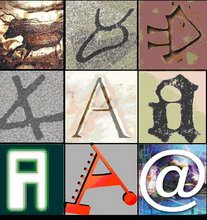9TH INTERNATIONAL CONFERENCE OF SOCIOCYBERNETICS
'MODERNITY 2.0': EMERGING SOCIAL MEDIA TECHNOLOGIES AND THEIR IMPACTS
URBINO, ITALY 29 JUNE - 5 JULY 2009
CALL FOR PAPERS
In recent years, the Internet and other information and communication
technologies have had great impacts on almost all aspects of human
life, locally and globally. The extant of these impacts can be seen in
the ubiquity of the use of the prefix 'e-', as in e-commerce,
e-business, e-government, e-democracy, e-science, e-learning,
e-entertainment and so on. Thanks to the cheaper prices and ease of
use of these technologies, more and more people are able to access
digital contents, as part of a mass audience, and more and more people
are able to create and publish content off their own initiative. The
Web has moved from being a one-way communication channel extending
traditional media, to a complex "peer-to-peer" communication space
with a blurred author/audience distinction and new ways to create,
share and use knowledge in a social way. This establishes new global
fora, started by a few, and sustained by millions of local acts. This
change of paradigm is currently profoundly transforming most areas of
our lives: our interactions with other people, our relationships, ways
of gathering, creating and disseminating information, ways of
developing social norms, opinions, attitudes and even legal aspects as
well as ways of working and doing business. It also raises a strong
need for theoretical, empirical and applied studies related to how
people may interact on the Web, how they actually do so and what new
possibilities and challenges are emerging in the individual, business
and technology dimensions. It is not the first time in the history of
social media that a new technology becomes suddenly available to a
wider group of people due to a specific social, economical and
historical context.
The last time something similar happened, the availability and
diffusion of the printing press, according to many authors, the
opportunities for the rise of modern society emerged. We are probably
facing a similar new extraordinary change that we can barely describe
today. According to the law of accelerated return identified by Ray
Kurzweil, this change is taking place at a much faster speed than
before. This is a major challenge for social science in a world where
'internet time' now runs at a clock speed several orders of magnitude
faster than that of academic research.
In order to explore these possibilities and tackle the challenges, a
more interdisciplinary scientific approach is required. The visionary
founding fathers of cybernetics and systems theory urged for this new
vision of the sciences as soon as they started working on teleological
machines interacting with human beings during the Second World War.
Not surprisingly, today, Sir Tim Berners Lee (the inventor of the
World Wide Web) is developing a vision for new field of
interdisciplinary study called Web Science. The goal of this
conference is therefore to bring researchers and practitioners
together to explore within a sociocybernetic approach the issues and
challenges related to social aspects of the new communication
technologies and especially the Web.
Possible topics should include, but are not limited to:
* Local issues with respect to a particular geographical region,
political entity or cultural or ethnic group;
* Global issues affecting all mankind in the 21st century;
* Emerging technologies and the link between the micro and macro
levels of individual actors and social institutions, respectively;
* Social systems and economic models of the web;
* Y Generation and participation on the web (politics, business
and entertainment);
* Culture, knowledge and social impact of the Semantic web;
* e-Social Science;
* Cyberculture, knowledge and local communities;
* Teaching the digital natives in networked space;
* The public/private distinction on the Internet;
* Cybernetics and Web Science;
* Social capital in social network sites (SNSs).
Papers with a strong sociocybernetic orientation addressing other
topics (conceptual, methodological, practical) are also welcomed
ABSTRACTS AND THE REVIEW PROCESS
Please submit a 500 to 1000 word detailed abstract for the review
process and for assignment to a particular session. In addition, 250
word regular abstracts are needed for the Conference Programme and
Abstracts booklet and for publication on the RC51 website.
All abstracts should be sent to the Chair of the Abstracts Committee,
Michael Paetau via the online abstract submission form:
http://larica-virtual.soc.uniurb.it/rc51/call/abstract-submission/.
DEADLINES
* February, 1 2009: 500-1000 word detailed abstracts
* March, 1, 2009: Notification of acceptance
* May, 3, 2009: 250 word regular abstracts
* May, 24, 2009: Registration
* June, 14, 2009: Full paper
SESSION AND LANGUAGES
The official language of the conference will be English.
VENUE AND ACCOMMODATION
The 9th International Conference of Sociocybernetics will take place
in the Faculty of Sociology of University of Urbino "Carlo Bo".
More info: http://larica-virtual.soc.uniurb.it/rc51/logistics/.
CONTACTS AND INFORMATION
Official conference website: http://larica-virtual.soc.uniurb.it/rc51/.
For any further questions and information, please consult the RC51
website at http://www.unizar.es/sociocybernetics/.
You may also directly contact any of the members of the International
Organizing Committee or the Coordinator of the National Organizing
Committee.
Assinar:
Postar comentários (Atom)


Nenhum comentário:
Postar um comentário